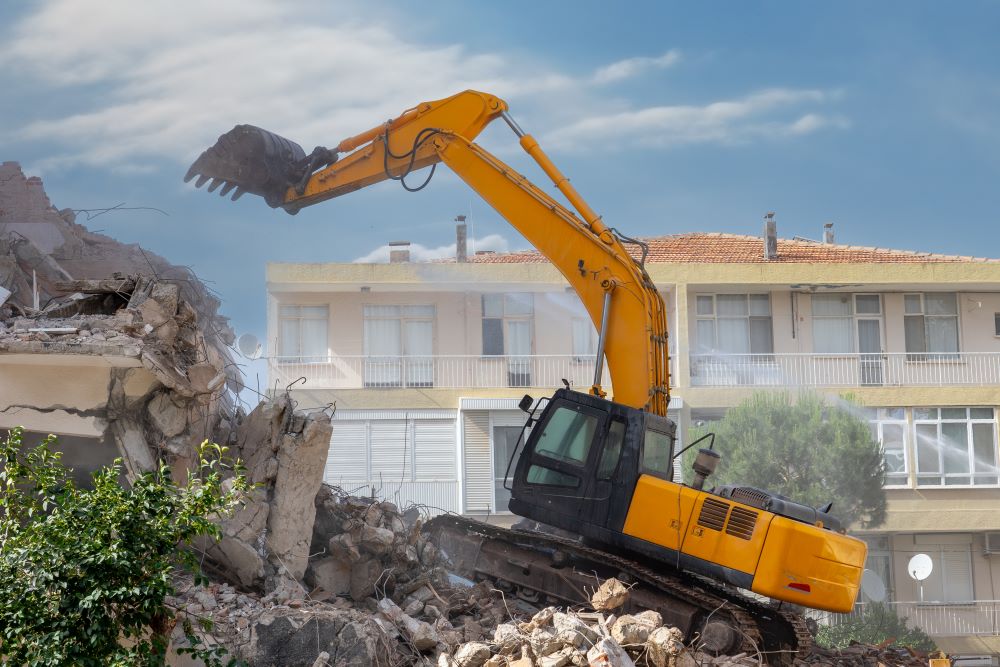
How Demolition Company Transform Communities for the Future
Demolition is more than simply taking down structures; it’s also about creating the groundwork for something fresh and creative. Demolition businesses provide room for new, practical buildings that meet the evolving demands of society by demolishing old, dilapidated ones. This process is crucial to community development because it opens the door to better urban regeneration, improved infrastructure, and lively living areas that increase inhabitants’ quality of life.
OUR SERVICES
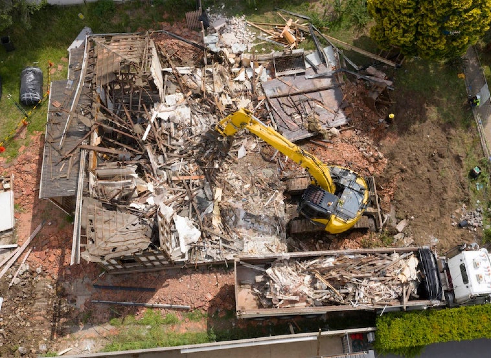
Structure Demolition. Residential, Commercial & Industrial
If your structure poses a health, safety, or environmental risk, demolition can prevent costly citations or fatal accidents. While this may seem daunting, you are just a phone call away from having your residential demolition done professionally, responsibly, and at a great price.
Talk to a Demolition Specialist Now! 916.249.5001
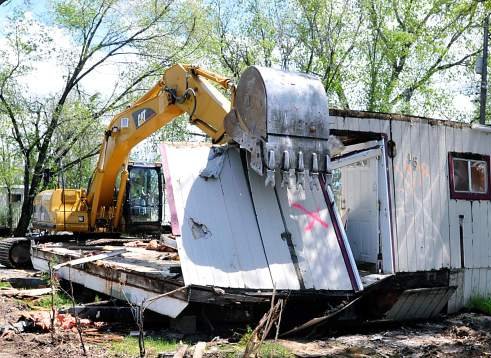
Mobile Home Demolition
We demolish and haul away mobile homes. Any size, anywhere, anyhow. We are fast, clean and competitive. We serve most of Northern California. There are many factors to consider when removing or demolishing your old trailer, mobile home, or manufactured home like: the processes involved, costs, time, contractors, debris, and permits.
Talk to a Demolition Specialist Now! 916.249.5001
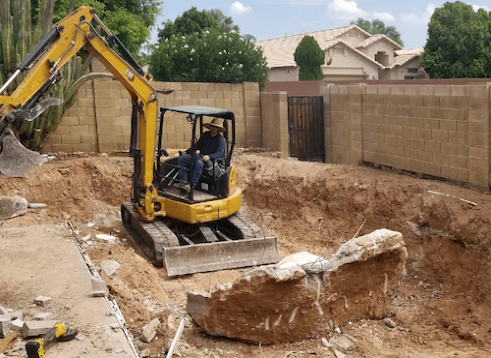
Pool Demolition
When removing a pool in Sacramento, California with the professional demolition team of Maxton Demo, you’re guaranteed peace of mind from beginning to end. From your initial request for an estimate to clean-up, you can expect our pool demolition process that’s completely professional and safe.
Talk to a Demolition Specialist Now! 916.249.5001
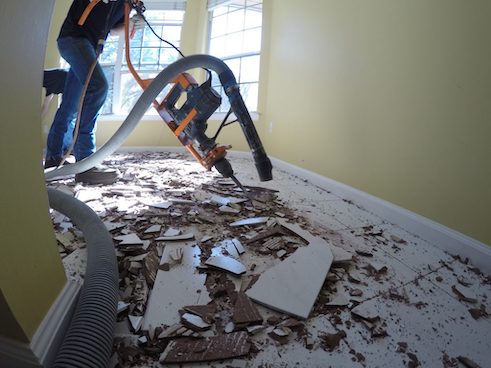
Floor Demolition
Flooring demolition, like any other major home renovation work, requires a specific set of skills and tools to be performed properly. You need experts in flooring demolition to get you the best floors possible. Contact us to find out more about how we can help you today.
Talk to a Demolition Specialist Now! 916.249.5001
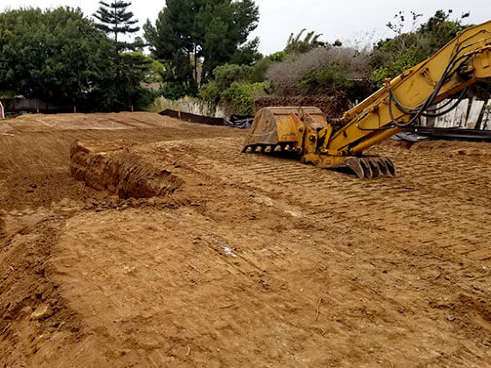
Grading & Excavating
If you need an experienced excavator and grader in Sacramento, call us today. One of the many reasons that residential, commercial, and industrial customers choose to work with us is because we’re able to provide a broad range of services to help construction-related projects get done in less time and at a reduced cost.
Talk to a Demolition Specialist Now! 916.249.5001

Roof Snow Removal
Heavy snow & ice dams can cause significant roof and home damage. Roof Snow removal is our specialty during the winter months. Serving the Sacramento, California area for 10 years, we can get your roof snow removed and promise a quick response and reasonable rates.
Talk to a Demolition Specialist Now! 916.249.5001
Urban revitalization and demolition
Urban regeneration initiatives often depend on the proficiency of demolition firms to initiate the metamorphosis procedure. Urban communities may see economic growth, job creation, and new investments when these enterprises clean blighted areas and remove development hurdles. Cities may rejuvenate neglected districts, draw in new companies, and create a more vibrant and profitable urban environment that benefits locals and tourists alike by implementing smart demolition projects.
The Role of Demolition Companies in Community Development Going Forward
By tearing down antiquated buildings and making room for new construction that satisfies changing societal demands, demolition businesses are essential to the future transformation of cities. These businesses are bringing about good change and reshaping the urban environments of the future via certification compliance, community involvement, technology developments, and sustainable practices. In the future, demolition firms will be judged on their capacity to innovate, work together, and pave the path for the development of resilient, inclusive, and prosperous communities that will benefit future generations.
Residential Demolition’s Significance in Urban Development
A key component of urban development is residential demolition, which makes it possible to knock down old buildings to provide space for expansion and renovation. The requirement for effective land use grows as cities change and as the population rises. In order to make room for new building projects, residential demolition businesses intervene, reviving areas and promoting economic growth. In addition to demolishing structures, they are skilled at making sure the procedure is carried out properly and securely.
The size of residential demolition operations varies, ranging from single-family houses to substantial multi-unit buildings. Careful planning and perfect execution are essential for every demolition in order to minimize disturbances to the environment. These businesses provide prospects for new homes, businesses, or public facilities to satisfy the changing requirements of urban residents by carefully tearing down existing buildings. Their action has an influence that goes well beyond simple devastation; it creates the conditions for advancement and creativity in urban development and design.
Project Types for Residential Demolition
Residential demolition includes a broad spectrum of projects, many of which need a customized strategy to be effective. Single-family house demolitions, multi-unit building demolitions, and selective interior demolitions are the three most popular kinds of residential demolition projects. The demolition of a single-family house often entails the whole dismantling of an independent residential building to provide room for new development.
The intricacy of destroying bigger buildings, however, calls for meticulous planning and cooperation when it comes to multi-unit building demolitions. When a building’s interior is demolished selectively, just a portion of the building’s structure is destroyed. This method is often used for remodeling projects when new design components may be included in a building without completely demolishing particular sections of the structure. Residential demolition firms are prepared to tackle the complexities of each demolition process with accuracy and skill, regardless of the kind of project.
Depending on the particular needs of the project, residential demolition projects may also use deconstruction, mechanical demolition, or implosion methods. An explosion is a controlled demolition technique that rapidly and effectively brings down buildings using explosives. Buildings are disassembled piece by piece by mechanical demolition, which makes use of large equipment like bulldozers and excavators. Conversely, deconstruction emphasizes preserving items for recycling or future use, encouraging sustainability, and cutting down on waste during the demolition process.
Every kind of home demolition project has different concerns and obstacles, which emphasizes the necessity for skilled experts to manage the whole process from beginning to end. Residential demolition firms are able to provide customized solutions that satisfy their customers’ objectives while upholding industry best practices and safety regulations because they have a thorough awareness of the subtleties of various demolition procedures and project requirements.
Precautionary Steps for Residential Demolition
Because handling hazardous chemicals and removing buildings come with inherent dangers, safety is of the utmost importance in residential demolition operations. In order to safeguard employees, surrounding properties, and the environment, residential demolition businesses place a high priority on safety by enforcing stringent standards and processes. Complete site evaluations are carried out in order to detect possible dangers and create a detailed safety plan prior to starting any demolition activity.
Demolition workers get specific training in equipment handling, demolition tactics, and emergency response. Training and certification are essential elements in guaranteeing a safe work environment. On demolition sites, personal protection equipment (PPE) is required in order to reduce the possibility of accidents and exposure to dangerous chemicals. Furthermore, regular safety audits and inspections are carried out to make sure that safety rules are being followed and to proactively handle any possible problems.
Residential demolition projects also take environmental factors into account, with a focus on reducing the negative effects of demolition operations on the local ecology. To lessen their impact on the environment, residential demolition businesses use sustainable techniques such as trash segregation, material recycling, and pollution control. Through the recovery of recyclable materials and the diversion of garbage from landfills, these businesses support environmental initiatives and encourage an approach to urban development that is more sustainable.
To further ensure environmental safety during demolition operations, hazardous materials, including asbestos, lead-based paint, and other toxins, must be handled and disposed of properly. Demonstrating their dedication to responsible demolition procedures, residential demolition firms collaborate closely with environmental organizations and regulatory bodies to comply with waste management and pollution control rules. Residential demolition firms maintain the highest levels of professionalism and honesty in their operations by combining strict safety protocols with environmentally conscious efforts.
The Residential Demolition Process
Residential demolition is a methodical procedure that starts with extensive preparation and concludes with site clearing and debris disposal. To protect the public, surrounding properties, and workers, every step of the demolition process is carried out precisely. The normal stages in a home demolition project are as follows:
Site Assessment: To analyze the state of the building, pinpoint possible dangers, and choose the most effective demolition strategy, a thorough site assessment is carried out prior to the start of any demolition operation. This assessment consists of site preparation considerations, assessments of structural integrity, and surveys for hazardous chemicals.
Permitting and Regulatory Compliance: In order to guarantee adherence to building rules, zoning laws, and environmental norms, residential demolition projects need to obtain a number of permits and permissions from local authorities. Demolition businesses comply with all legal standards and seek the required permissions in close collaboration with regulatory bodies.
Utility Disconnection: To avoid mishaps and guarantee a seamless demolition procedure, utilities including water, gas, electricity, and sewage must be securely disconnected prior to destruction. Utility companies are contacted by demolition workers to make arrangements for the removal and disconnecting of utility wires from the site.
Structural destruction: The removal of non-load-bearing components such as fixtures, fittings, and interior finishes is the first step in the actual destruction of the building. Exterior walls, roofs, and foundations are methodically demolished using the proper demolition procedures once the interior has been cleaned out.
Debris Removal and Site Clearance: Following the building’s demolition, large machines and disposal bins are used to gather, sift, and remove debris from the site. Leveling the ground, backfilling portions that have been dug, and getting the site ready for new building or development are all part of site clearing.
Final Inspections: Following the demolition process, final inspections are carried out to confirm that the site has been removed in accordance with environmental and safety regulations. Inspectors make sure that the site is safe for future use, that all waste has been removed, and that hazardous chemicals have been handled correctly.
To achieve a good end, home demolition involves careful planning, experienced personnel, and respect for safety regulations. Residential demolition businesses use their knowledge and resources to effectively oversee every stage of the demolition process, producing outcomes that adhere to the strictest safety and quality regulations.
Environmental Factors in the Demolition of Residential Buildings
In order to reduce their ecological imprint, home demolition businesses base their procedures and choices on the fundamental idea of environmental sustainability. Residential demolition businesses support conservation efforts and encourage a more sustainable approach to urban development by using eco-friendly practices and technology. Key environmental factors to take into account while demolishing residential buildings are as follows:
garbage management: demolition projects in homes produce a lot of garbage, such as metal, wood, concrete, and other debris. Demolition businesses use waste management techniques, including recycling, rescuing useable items, and sorting debris for appropriate disposal, to lessen their effect on landfills. These businesses assist in the preservation of natural resources and lessen the environmental impact of demolition operations by diverting waste from landfills.
Materials Recycling: In residential demolition operations, it is customary to salvage and recycle materials from destroyed buildings. Reusing and processing materials like concrete, brick, metal, and wood in new building projects lowers the need for virgin resources and the greenhouse gas emissions that come with producing new materials. Recycling reduces trash and promotes the circular economy, which both lessen the environmental effect of demolition operations.
Pollution Prevention: The dust, noise, and pollutants produced by demolition operations have the potential to affect the local water and air quality. In order to reduce environmental disruptions, residential demolition businesses use pollution prevention techniques, including dust management, noise reduction, and erosion control. These organizations lessen the possible harm that demolition may do to the environment and other communities by using eco-friendly tools, techniques, and technology.
Hazardous Material Handling: During demolition, many older buildings may contain hazardous materials, including asbestos, lead-based paint, and mold, that might be harmful to one’s health. To safeguard employees and the environment, residential demolition firms adhere to stringent procedures for locating, removing, and securely disposing of hazardous items.
During demolition operations, specialized training, tools, and processes are used to guarantee regulatory compliance and avoid pollution.
Residential demolition firms show their dedication to environmentally responsible development and sustainable development by including environmental factors in their demolition procedures. By means of creativity, cooperation, and ongoing improvement, these enterprises endeavor to establish novel benchmarks for environmentally sensitive demolition methodologies within the urban development sector.
A Residential Demolition Company’s Function in Urban Planning
By enabling the reconstruction of vacant or abandoned structures, residential demolition businesses contribute significantly to urban planning by opening up prospects for new construction and community uplift.
By virtue of their proficiency in demolition methods, adherence to laws and regulations, and environmental conservation, these businesses support the deliberate expansion and advancement of metropolitan regions. Key facets of a residential demolition company’s function in urban planning include the following:
Property reclamation: By reusing underused structures and reviving urban districts, residential demolition businesses assist in reclaiming unused or decaying property for future development. These firms unleash the potential for housing, commercial spaces, parks, or public amenities that improve citizens’ quality of life and foster economic growth by demolishing outdated buildings and making way for new construction.
Infrastructure Renewal: In order to increase livability and sustainability, urban development must strategically address the issues posed by aging buildings and infrastructure. Residential demolition businesses prepare lands for contemporary, effective development by demolishing obsolete buildings. These businesses promote the development of robust, future-ready communities and assist in modernizing urban infrastructure through their proficiency in controlled demolition and site clearing.
Community Engagement: In order to make sure that demolition operations are in line with local requirements and goals, residential demolition projects often include cooperation with stakeholders, government organizations, and local communities. To resolve issues, get input, and create agreement on redevelopment plans, residential demolition businesses participate in open dialogue, public hearings, and community outreach programs. Through cultivating constructive connections with local communities, these businesses advance social cohesiveness and diversity in urban planning endeavors.
Residential demolition firms use their knowledge and resources to turn abandoned buildings into thriving, sustainable assets for communities, acting as catalysts for good change in urban design. Through compliance with legal regulations, environmental standards, and urban development objectives, these enterprises play a proactive and responsible role in shaping the future of our cities.
The Advantages of Using a Skilled Residential Demolition Company
For developers, communities looking to take on demolition projects, and property owners, choosing to work with a competent residential demolition firm has several advantages. Professional demolition firms ensure that demolition projects are carried out safely, effectively, and in accordance with laws by bringing a wealth of knowledge, skills, and resources to the table. The main advantages of working with a qualified home demolition business are as follows:
Safety and Compliance: Skilled demolition businesses give top priority to safety and legal compliance in all aspects of their operations, including debris disposal and site inspections. These businesses safeguard employees, property, and the general public by minimizing risks and liabilities related to demolition operations by adhering to industry best practices, safety procedures, and environmental requirements.
Efficiency and Expertise: Skilled demolition firms are equipped with the specific knowledge, tools, and abilities needed to carry out demolition tasks precisely and efficiently. These businesses save their customers time and money by providing outcomes that satisfy the highest standards of quality and timeliness, from controlled demolition methods to strategic planning.
Environmental Sustainability and Responsibly Managed Waste: Expert demolition firms are dedicated to environmentally sustainable operations. By using environmentally conscious practices like recycling materials, preventing pollution, and managing hazardous chemicals, these businesses lessen their negative effects on the environment and encourage a more sustainable method of doing demolition work.
Cost-Effectiveness: By eliminating expensive errors, delays, and rework that may arise with untrained workers, hiring a competent demolition firm may ultimately save property owners money. Expert demolition firms guarantee that demolition projects are completed on schedule and under budget by offering precise cost estimates, clear pricing, and effective project management.
Peace of Mind: Property owners may rest easy knowing that their demolition projects are in skilled hands when they commit them to qualified professionals. Professional demolition firms take care of every part of the demolition process, from planning and obtaining permits to carrying it out and clearing the site, giving property owners the confidence and certainty to concentrate on other important tasks.
Frequently Held Myths Regarding Residential Demolition
Notwithstanding the crucial role residential demolition plays in urban development, there are a number of widespread myths and misunderstandings about the sector. These myths are often the result of ignorance about safety procedures, environmental factors, and demolition project procedures. We may recognize the worth and significance of expert demolition services by dispelling these misconceptions and illuminating the facts surrounding home demolition.
Demolition is Destructive: Although it entails destroying buildings, demolition is not the same as destruction. Expert demolition firms use technology and regulated methods to safely and effectively destroy structures while causing the least amount of collateral damage and disruption to the surrounding environment. Safety, accuracy, and environmental responsibility are the top priorities in the meticulously planned and carried out process of demolition.
Demolition is not a sustainable process. In contrast to common opinion, professional businesses that focus on pollution avoidance, waste reduction, and material recycling may make home demolition a sustainable operation. Urban development projects benefit from demolition businesses’ contributions to resource efficiency and environmental conservation via the recovery of recyclable materials and the use of environmentally conscious practices.
Demolition is Dangerous: Home demolition businesses place a high premium on safety, making investments in tools, training, and procedures to protect their employees and the general public. Demolition firms reduce risks and dangers related to demolition operations by adhering to industry standards, regulations, and stringent safety rules. This results in a safe working environment for all parties involved.
Residential Demolition’s Future in Urban Development
Residential demolition firms play an increasingly important role in defining our cities’ futures as urban environments continue to change and grow. These businesses are driving the path for advancement, creativity, and sustainability in urban development—they are not just tearing down buildings. Residential demolition firms have the potential to significantly contribute to the creation of dynamic, resilient, and inclusive urban landscapes for future generations by upholding safety, efficiency, and environmental responsibility.
Collaboration, creativity, and ongoing development are key components of the future of residential demolition as businesses work to integrate state-of-the-art equipment, environmentally friendly procedures, and community-focused demolition strategies. Residential demolition firms will remain influential in building the urban environments of the future through their collaborations with stakeholders, support of smart development regulations, and dedication to environmental and social responsibility.
In order to create stronger, more vibrant, and more sustainable cities for all, residential demolition firms have made vital contributions. Let’s acknowledge and value their efforts as we look to the future of urban development.
Do you have a Question?
Talk to a Demolition Specialist Now! 916.249.5001
Request Formal Quote